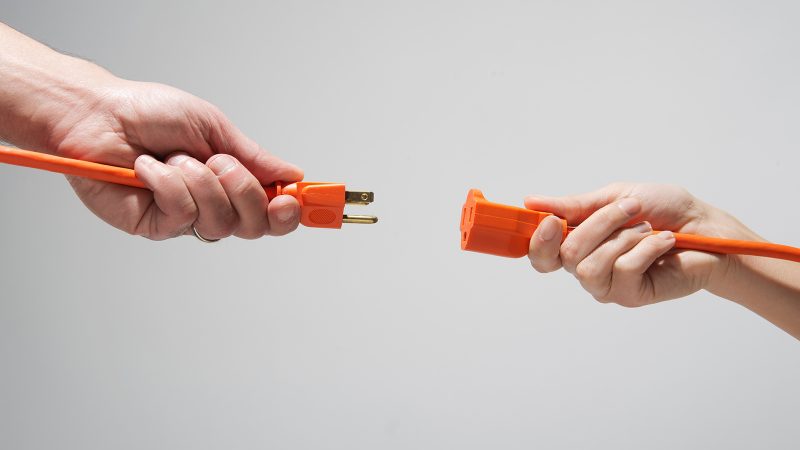By Charlotte Giver
Mentally distracting oneself from work during out of work hours can help restore emotional, cognitive and spiritual resources lost because of long hours, work stress and demands. Research has found significant associations between psychological detachment and well-being such as job burnout and life satisfaction. Getting away from work mentally, emotionally and behaviourally is most important when we are stressed, have a high workload or overloaded.
When job demands are high for example, employees should use rituals to wind down at the end of the day to disengage from job-related thoughts such as avoiding the temptation to check emails or preparing for a meeting in the evening.
Getting away from work is important – taking a holiday, using your annual leave or even just encouraging flexible working hours can help to feel less stress and burnout.
This week, we have teamed up with Chloe Ward, a TMS Technician at Smart TMS, the UK’s leading mental health clinic specializing in Transcranial Magnetic Stimulation, to give you ways to detach yourself from work.
1. Sleep
Sleep is important as adults need around 7-9 hours of sleep a night for optimal performance – any less or any more and your performance can be affected. However, it’s not just the quantity of sleep, but the quality too, so ensure that your sleeping conditions are optimum.
Alternatively, a nap of around 20 minutes is very beneficial for recovery during the day – however, it’s unlikely that your boss would agree with that!
2. Exercise
A brisk walk or a run is important to maintain fitness and is found to contribute towards physical and mental health. The saying goes ‘a healthy body contributes to a healthy mind’. Regular exercise can boost your self-esteem, can help you concentrate as well as promote better sleep.
If you work in an office it can make a huge difference to get out for a walk on your lunch break or to build in exercise before work to ease you into the day or afterward to help you detach from the day’s stressors.
3. Your diet
What we eat can affect how we feel immediately afterward but in the longer term, it can be hard to keep up a healthy pattern of eating when at work plus ensuring that you’re getting your daily intake of water.
For busy times at work or for times when you are feeling low or stressed, try reducing or giving up caffeine and refined sugar. Likewise, it would be helpful to ensure that you have healthy snacks in your desk drawers – that way, when hunger strikes, you’re not tempted to reach for the biscuit jar!
4. Relaxation techniques
Relaxation techniques such as mindfulness, meditation, or yoga can help to increase positive emotions and reduce levels of stress. Create a buffer zone when you get home from work for 30 minutes or more for you to do what you like to relax, perhaps listen to some relaxing music. But the key here is to make this a routine.
5. Be happy
Humour and laughter are associated with reducing levels of stress, as well as other health-related outcomes including pain thresholds.
The fact of the matter is – laugh more, worry less. It’s scientifically proven!
6. Use your support networks
Social support can minimize stressful situations at work and home.
Emotional support can help us detach from work and recover after a long day. Talking about your feelings can help you maintain your mental health and deal with times when you feel troubled but it’s important to remember that talking about your feelings isn’t a sign of weakness; it is a part of taking charge of your well-being and doing what you can to stay healthy.
Identify someone you feel comfortable with and who will be supportive when you are talking about work, your frustrations and how it’s making you feel.
7. You are more than your job
Remember that you are more than your job. In psychology, there is a concept called self-complexity which suggests that there are many facets to your identity. Research has shown that exploring these facets can help you cope with experiences like failure, stress or depressions.
It’s important to embrace and derive value from other roles in your life including your relationships and your hobbies, schedule time to see a friend or pick up a new hobby or interest.
The ability to detach emotionally from your work can make you better as a whole – both on a day to day basis but also in your career role.
8. Make plans
Give yourself a reason to leave the office at a normal hour. Schedule an event, appointment or catch up with friends after work so that you have some motivation to help you focus throughout the day during office hours. Planning an enjoyable and social activity in the evening is a great way to destress and will give you something to look forward to during the day!
Sign up to receive daily news, inspiration, and advice on how to master work and life from Ladders.
Charlotte Giver is the founder and editor-in-chief at Your Coffee Break. With a background in PR working in Los Angeles and Barcelona, Charlotte has been working hard running YCB from the YCB headquarters in London’s Covent Garden for the past four years.
Originally published at www.theladders.com


